December 21, 2015
Working at Mowat, we get to read a lot of writing about public policy. While most of that work is solid and thoughtful, sometimes we come across pieces in the sea of pixels and pdfs that truly standout. They make us pause and say “wow, I wish we wrote that.”
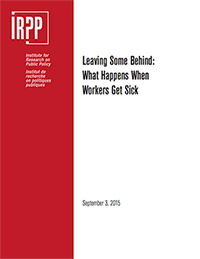
Leaving Some Behind: What Happens When Workers Get Sick
by Tyler Meredith and Colin Chia, Institute for Research on Public Policy, September 2015
This report changed the way we looked at sickness and disability and put a spotlight on the gaps in our safety net. Six per cent of Canadian workers change their work status (e.g., significant time off or switch from full to part-time) in a given year because of a personal health issue. This report showed how too many of these workers get left behind.
View report

Fewer, Faster, Smarter
by Larry Downes, Democracy Journal, Fall 2015
This article frames the challenge faced by governments in trying to come up with policy to respond to fast-moving new disruptive technology changes. As Downes puts it, a year can be seen as lightning quick for regulators, but it’s a lifetime for businesses operating in the world of Moore’s law. This article is helpful background for many of the debates we’ve had over the past year and many that we can expect in the year to come.
Read article

Space Debris: A Law and Economic Analysis of the Orbital Commons
by Alexander Salter, Mercatus Center, September 2015
After nearly 60 years of space exploration, we’ve left a lot of garbage behind — broken satellites, discarded rockets and more. The debris is getting to be a problem, and we are going to need solutions to address our shared “orbital commons” or it will only get worse. Salter made us think about space garbage, and that’s always a good thing.
View report

Why you should be an e-resident of Estonia
by Ben Hammersley, Wired Magazine, February 2015
This article tells the story about how the Republic of Estonia managed to build a highly-connected economy and how their digital approach to public services could change the way that we think about how we interact with our governments.
View article

Re-thinking the think tank
by Anne-Marie Slaughter and Ben Scott, New America Foundation, Washington Monthly, November 2015
This piece by Slaughter, the CEO of the New America Foundation, and Scott, a Senior Advisor at New America’s Open Technology Institute, presents a new vision for how they see their think tank’s role in the policy process. They argue that “Washington’s stuffiest institutions need to reconnect with America” and propose moving from a more traditional top-down approach to a broader range of involvement for think tanks in what they call “civic enterprises.”
View article
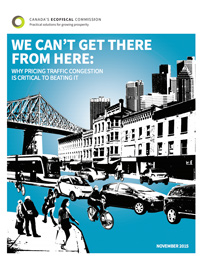
We can’t get there from here: Why pricing congestion is critical to beating it
by Canada’s Ecofiscal Commission, November 2015
This report by the Ecofiscal commission recommends that we deal with urban congestion by using congestion pricing. It got our attention not just because of its research, but by the way that they made a very complex set of ideas clear and accessible for a broad audience.
View article
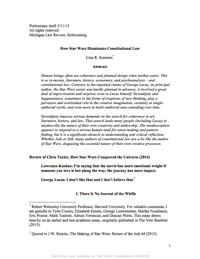
How Star Wars Illuminates Constitutional Law
by Cass Sunstein, May 2015
In this article, Cass Sunstein, the former head of the White House Office of Information and Regulatory Affairs, co-author of Nudge and Harvard Law professor turns his attention to Star Wars — specifically what the series tells us about constitutional interpretation for decisions today.
View article

Wholesale Government: Open Data and APIs
by Aneesh Chopra and Nick Sinai, Shorenstein Center, April 2015
This quick read gives clear examples of the potential for open data to change the way government works. Chopra and Sinai say open data won’t just help government do “retail” better by improving how government offers services. Open data is also something that government offers “wholesale” — allowing third parties to take the data and make something new from it —from weather apps to connecting students with financial aid.
View article
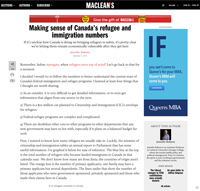
Making Sense of Canada’s Refugee and Immigration Numbers
by Jennifer Robson, Maclean’s, September 2015
Robson shed light on the current state of federal immigration policy and programs in this piece of engaging writing, deconstructing the fragmented public reporting about an important and complex government program and leaving us better informed about what their government was doing at the time. This is what good public policy writing should aspire to.
View article
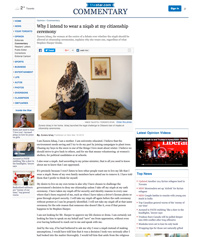
Why I intend to wear a niqab at my citizenship ceremony
by Zunera Ishaq, Toronto Star, March 2015
While public policy conversations can seem abstract, narrative (especially first-person accounts) can help us understand the real implications for people’s lives, and can be very powerful in shaping policy decisions. In this op-ed, Ishaq (the permanent resident who launched the legal challenge to a policy that required her to remove her niqab at her citizenship ceremony) tells her own story about why the freedom to wear the niqab at the ceremony was so important to her.
View article
Author
Mowat Centre
Release Date
Dec 21, 2015







